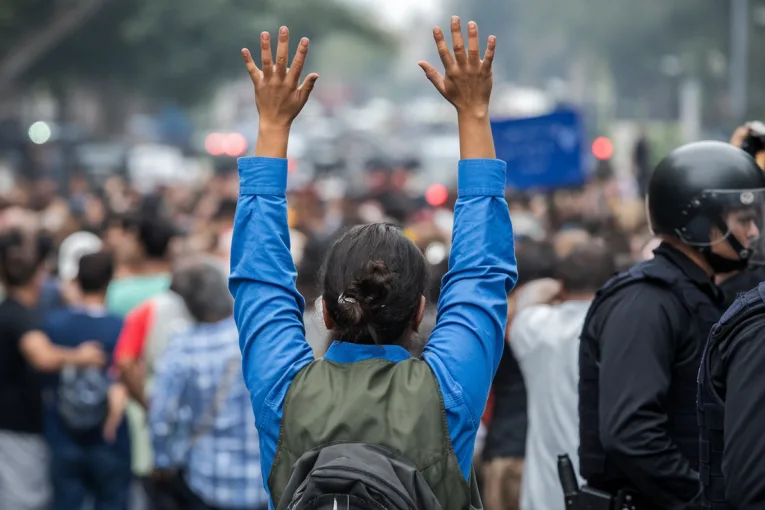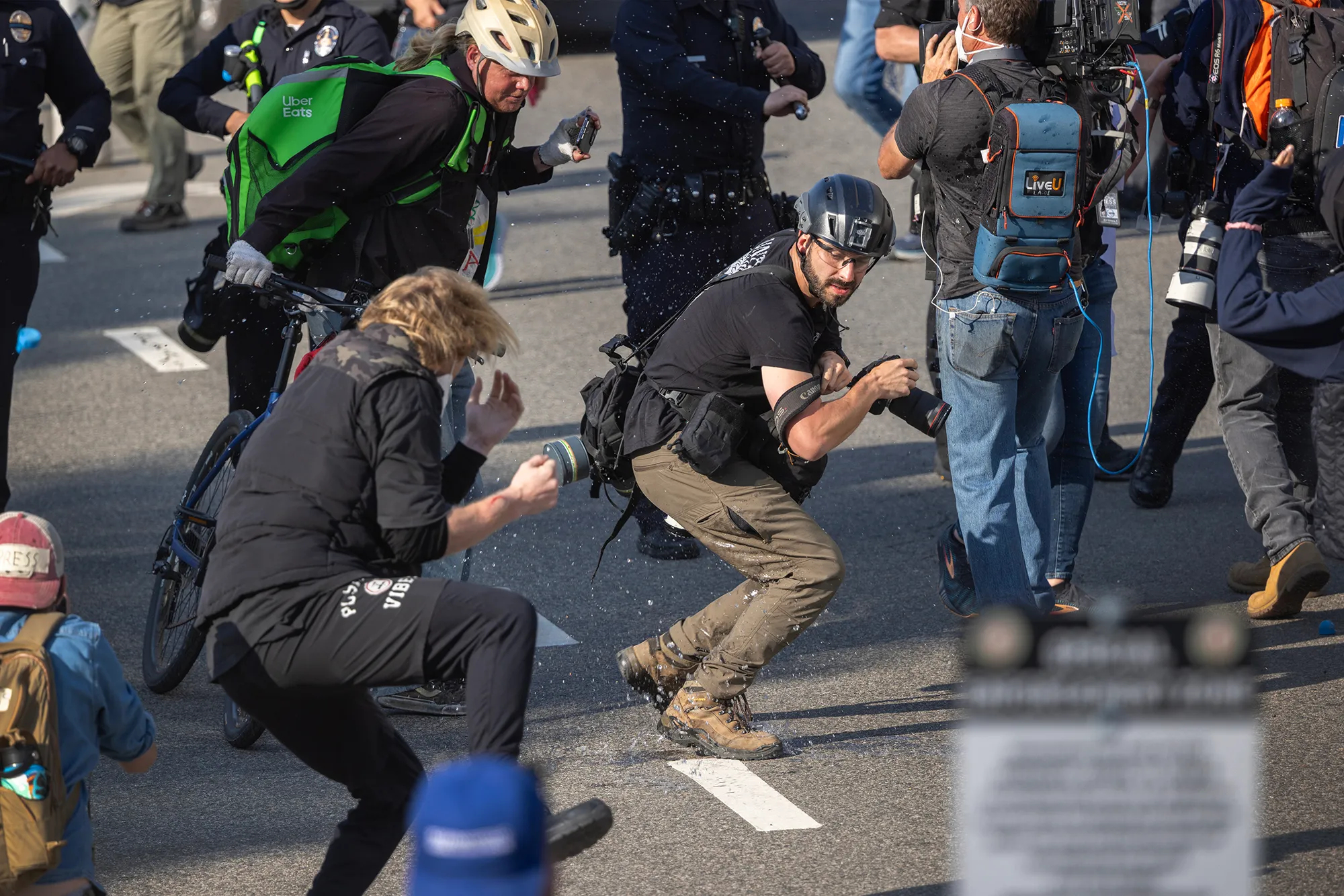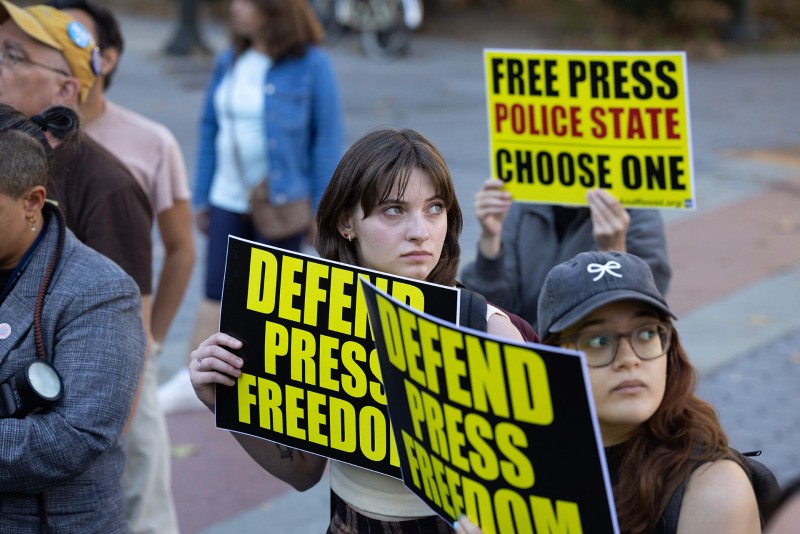
Press Freedom Under Siege in Los Angeles Amidst Immigration Protests
June 11, 2025
BBC Faces Ageism Allegations Over Journalist Discrimination
June 12, 2025June 11, 2025 – General –
The tragic death of journalist Ruben Salazar 55 years ago casts a long shadow over current law enforcement practices in Los Angeles. Salazar, a prominent Mexican-American reporter, was killed on August 29, 1970, when a tear-gas projectile fired by a sheriff’s deputy struck him while he was covering the Chicano Moratorium March against the Vietnam War.
Today’s Los Angeles protests—sparked by sweeping ICE raids in early June 2025—have seen a resurgence in the use of “less-lethal” munitions and tactics against journalists. CalMatters reports that law enforcement has deployed rubber bullets, pepper balls, and flash-bang devices during the unrest, raising concerns that reporters are again becoming targets while documenting civil upheaval.
According to CalMatters and Tucson Sentinel, at least half a dozen journalists have been struck by projectiles over four days of protests. The alignment of current events with Salazar’s death has deeply unsettled the press, as echoes of violence against media workers grow louder. CalMatters notes the “specter” of law enforcement firing into crowds of both protesters and reporters is a haunting reminder of Salazar’s killing.
This parallel brings to light historical patterns: in 1970, no law enforcement officer was prosecuted for the journalist’s death, although Salazar’s family later received a settlement. Now, journalists and press freedom groups are sounding the alarm, warning that similar tactics threaten to undermine press freedom and public trust in accountability.
Today’s protests involve heavy federal deployment, including National Guard troops and Marines, creating an intense environment reminiscent of past militarized responses. Within this charged atmosphere, press advocates demand protocols that protect journalists’ rights and prevent the repetition of history now unfolding on LA streets.
As Salazar’s case recedes further into the past, its lessons remain starkly relevant. The death of a journalist due to state force 55 years ago serves as a somber warning: when tactics used to control protest also threaten those documenting it, democracy itself is endangered.
Reference –




